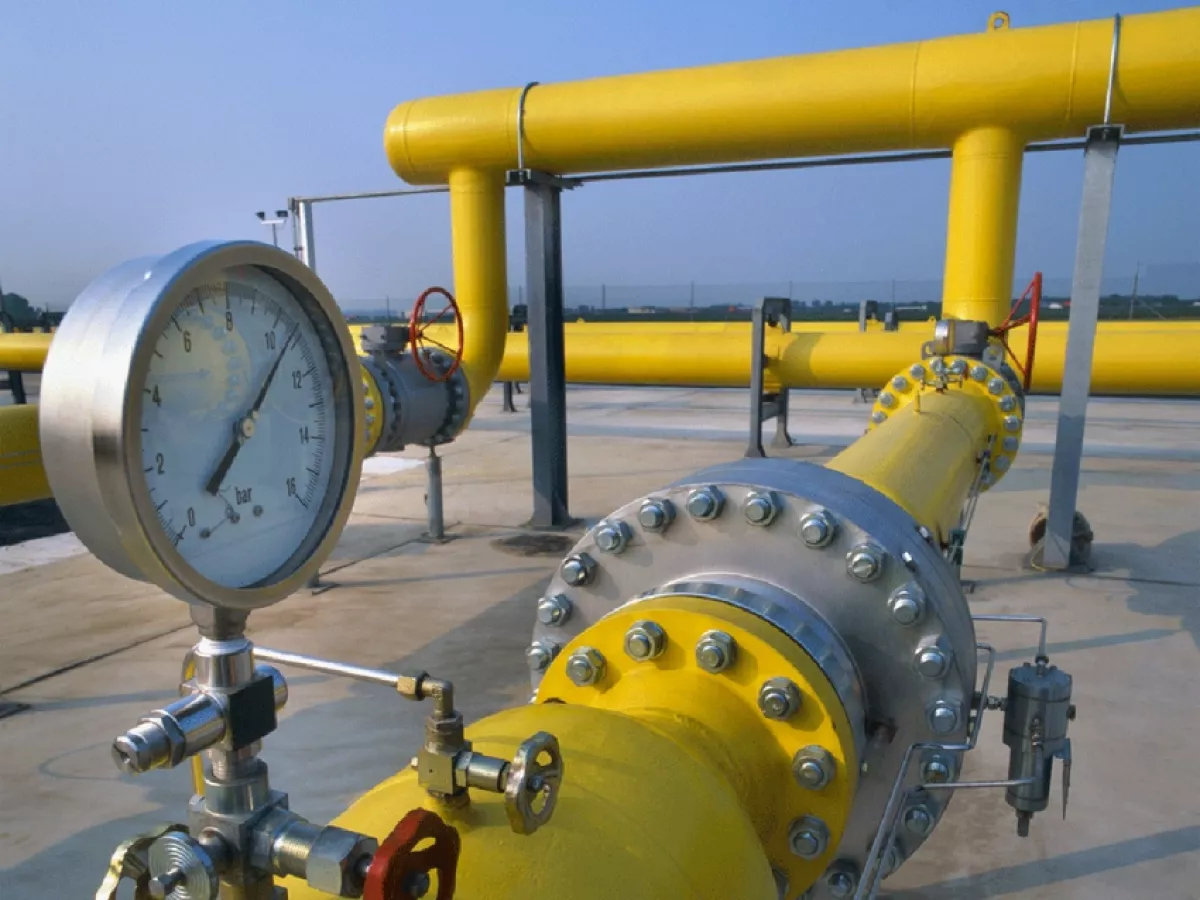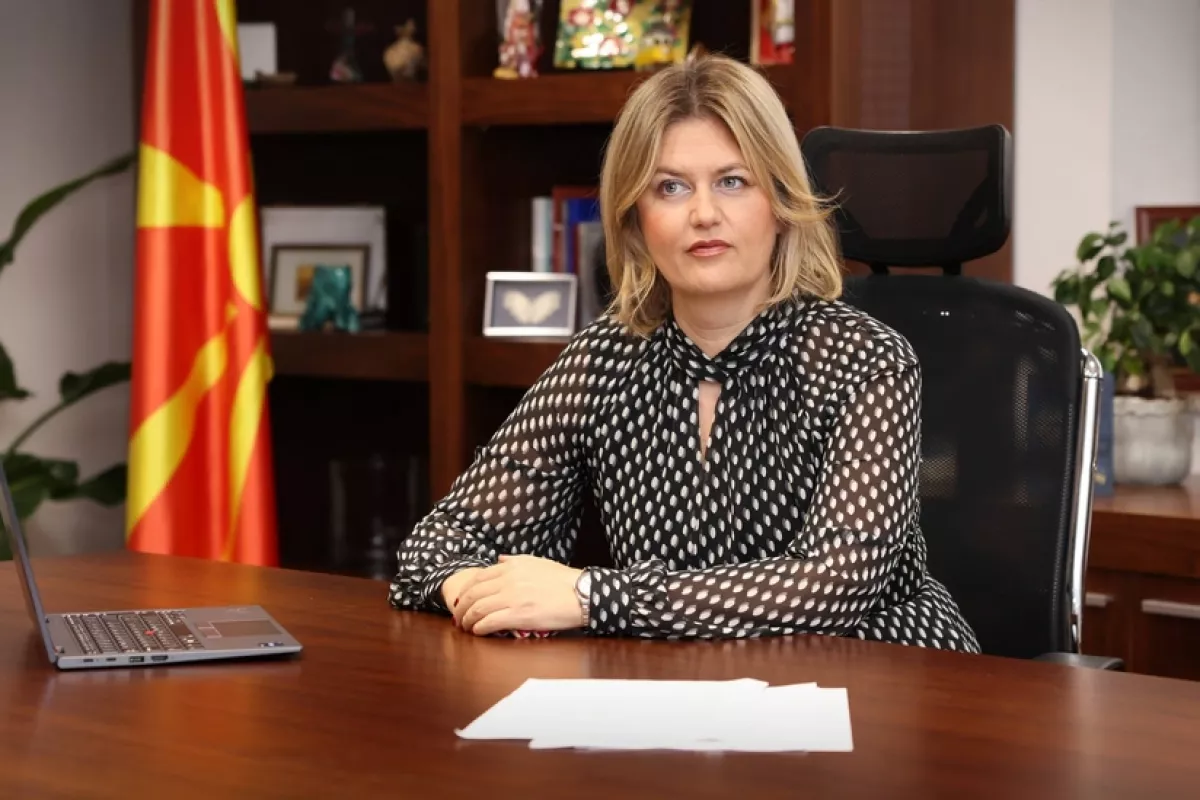Hybrid gasification: Azerbaijan and North Macedonia set strategic priorities Caliber.Az review
The longstanding partnership between Europe and Azerbaijan in the energy sector has, in recent years, seen its most dynamic growth in the Balkan region. Within the framework of expanding infrastructure and increasing the capacity of the Southern Gas Corridor (SGC), more and more countries are beginning to import Azerbaijani natural gas. Among these initiatives, the State Oil Company of Azerbaijan (SOCAR) is actively involved in a hybrid gasification project in North Macedonia and plans, once the interconnector is completed, to begin supplying pipeline gas to the country’s market.
In recent years, Azerbaijan has been actively expanding its economic ties with countries across Southern and Eastern Europe, with the SGC pipeline system serving as the main driver of these relations. Stretching 3,500 km from Azerbaijan’s offshore fields to Italy and several Balkan nations, the SGC has become a critical artery for regional energy supply. Today, Azerbaijan’s role in ensuring Europe’s energy security is difficult to overstate. Initiatives implemented under the SGC framework not only strengthen Azerbaijan’s position in the global energy market and boost exports, but also facilitate the development of new production and infrastructure projects. Thanks to the SGC, Azerbaijani natural gas now reaches around a dozen European countries.
Following the signing of the Memorandum of Understanding on Strategic Energy Partnership between Azerbaijan and the EU in Baku in July 2022—which envisions doubling Azerbaijani gas exports by 2028—projects to expand the capacity of both the SGC and the Trans Adriatic Pipeline (TAP) were launched. Significant progress has been achieved in several areas: compressor stations and gas distribution networks are being modernised across Southern and Eastern Europe, and the construction of new interconnectors is accelerating.

In this context, SOCAR, in partnership with BP Azerbaijan, is making major efforts to boost production at the country’s main offshore gas field, Shah Deniz. The Shah Deniz Compression (SDC) project, scheduled for completion between 2029 and 2030, will encompass the Shah Deniz Alpha and Bravo platforms as well as an expansion of the Sangachal Terminal infrastructure.
Looking further ahead, Azerbaijan’s gas production could rise substantially with the planned commissioning of the Shafag-Asiman block and the development of large gas-condensate fields such as Umid-Babek and Karabakh. Together with the Absheron reserves, SOCAR specialists estimate that these resources could exceed 1 trillion cubic metres of gas. Future production growth is also supported by last year’s drilling of the first deep-gas well in the Azeri-Chirag-Gunashli (ACG) block. Overall, new assessments place Azerbaijan’s total forecasted natural gas reserves at approximately 4 trillion cubic metres.
Today, Azerbaijan is stepping up efforts to increase gas production and expand exports by an additional 8 billion cubic metres by 2030. Demand is rising rapidly, driven by new contracts that require a steady increase in gas supplies. These efforts are proving largely successful: in 2024, exports of domestic natural gas are projected to reach 25 billion cubic metres.
According to data from the State Customs Committee (SCC), deliveries from January to July this year nearly reached 14.41 billion cubic metres, generating revenues of over $5.269 billion. During this period, the physical volume of exported natural gas grew by 4.1%, while its value increased by 10.8% compared with the same period last year.
Thus, in addition to Türkiye, Georgia, Italy, Greece, Bulgaria, Romania, and Hungary, Azerbaijani gas supplies were extended last year to Serbia, Slovenia, Croatia, and Slovakia. This year, the list of new buyers has grown to include Syria, and in July, pilot deliveries to Ukraine were launched via the Trans-Balkan Pipeline. Exports to Albania could also begin as early as the end of 2026.
Another key focus of Azerbaijan’s gas strategy is cooperation with North Macedonia. In November 2024, during the UN Climate Conference COP29, SOCAR signed a Memorandum of Understanding with the state enterprise Elektrani na Severna Makedonija (ESM) to establish long-term collaboration aimed at strengthening energy security and exploring prospects for natural gas supplies.
“The Southern Gas Corridor (SGC) project, in which Azerbaijan plays a key role, is crucial for strengthening gas security and the reliability of supplies in Southeastern and Central Europe. At present, North Macedonia does not have a direct contract for gas supplies from Azerbaijan; small volumes of Azerbaijani gas are delivered via Bulgarian traders under short-term agreements,” Sanja Božinovska, North Macedonia’s Minister of Energy, Mining and Minerals, told Azerbaijani media. “North Macedonia intends to purchase gas directly from Azerbaijan on a long-term basis in the near future, once infrastructure issues are resolved.”
According to the energy minister, this will become possible after the commissioning of the gas interconnector between Serbia and North Macedonia. A feasibility study and cost estimates for the project have already been completed, along with an environmental impact assessment and a Memorandum of Understanding with Serbia. The new interconnector will span approximately 66.5 km, have a capacity of 1.4 billion cubic metres per year, and is scheduled for completion within the next 3.5 years.

At the same time, SOCAR is participating in a hybrid gasification project in North Macedonia. “We have started gas deliveries to North Macedonia and are considering a hybrid gasification project for the country. There is an opportunity to transport compressed gas from Bulgaria to North Macedonia for the gasification of certain social facilities,” Murad Heydarov, head of SOCAR Balkan’s regional office, told the media on September 8. “We can leverage Bulgaria’s experience and supply compressed gas from there by road to social clients in North Macedonia—hospitals, schools, and other public institutions.”
According to Energy Minister Božinovska, the city of Strumica already has a virtual gas distribution network, where gas is delivered by tanker trucks. The network currently serves around 400 consumers, including households, industrial enterprises, and public and social institutions.
In this context, North Macedonia’s partner is M-Gaz, which began operations in Bulgaria in July last year. M-Gaz focuses on the industrial sector and operates under the ESCO (Energy Service Company) model for gasifying social consumers. The ESCO mechanism involves implementing and maintaining energy-efficient or renewable energy projects for clients, with payments linked to the energy savings achieved and/or the reduction in environmental impact.
Notably, the hybrid gasification concept was jointly developed by M-Gaz and SOCAR’s regional Balkan office. Beyond the Bulgarian market, the hybrid project is planned to expand to North Macedonia in partnership with CNG Systems Ltd. There are also plans to supply compressed natural gas (CNG) to Albania, including the development of CNG logistics and the construction of a new gas compression station near the city of Korçë, where SOCAR is already implementing gasification projects.
In addition, a final decision on further increasing the capacity of the Trans Adriatic Pipeline (TAP) is expected in January next year. Under the first phase of expansion, the pipeline’s capacity will grow by 1.2 billion cubic metres per year, with commercial operations scheduled to begin in December 2026. Following the expansion, Italy is expected to receive 1 billion cubic metres of Azerbaijani gas, while Albania will receive approximately 200 million cubic metres.








